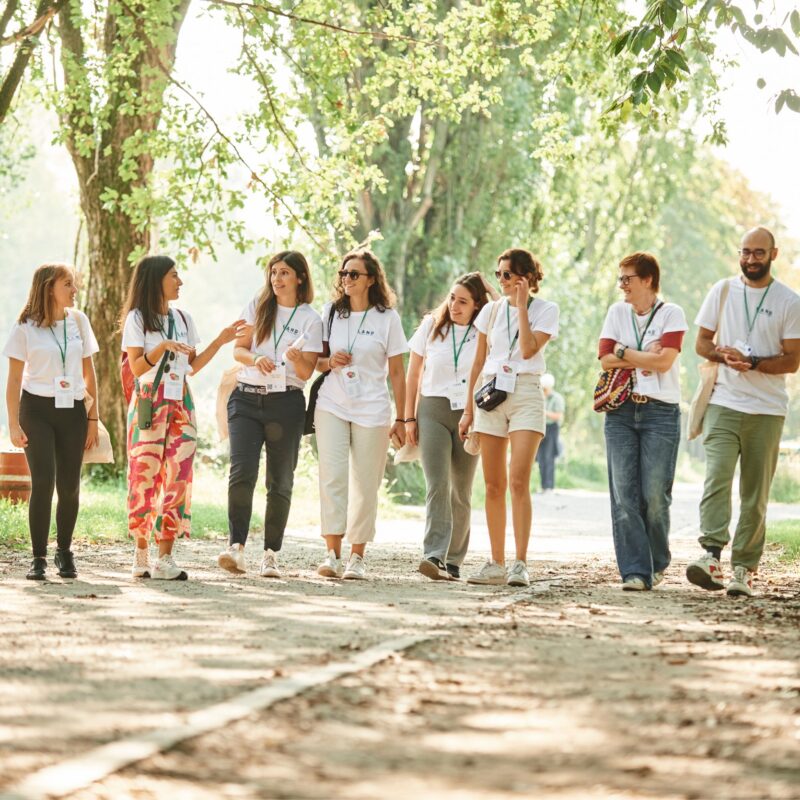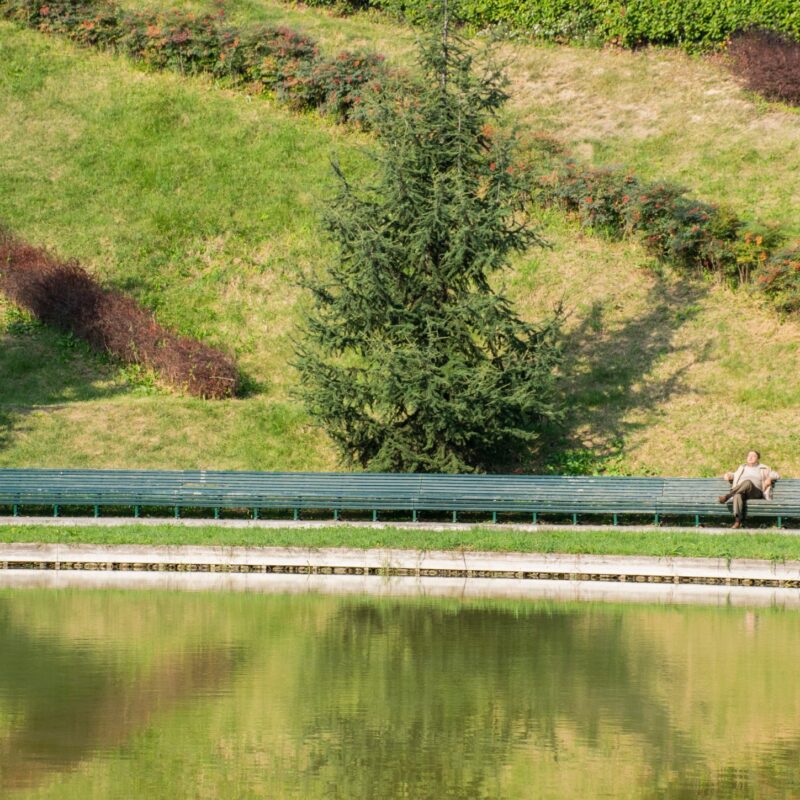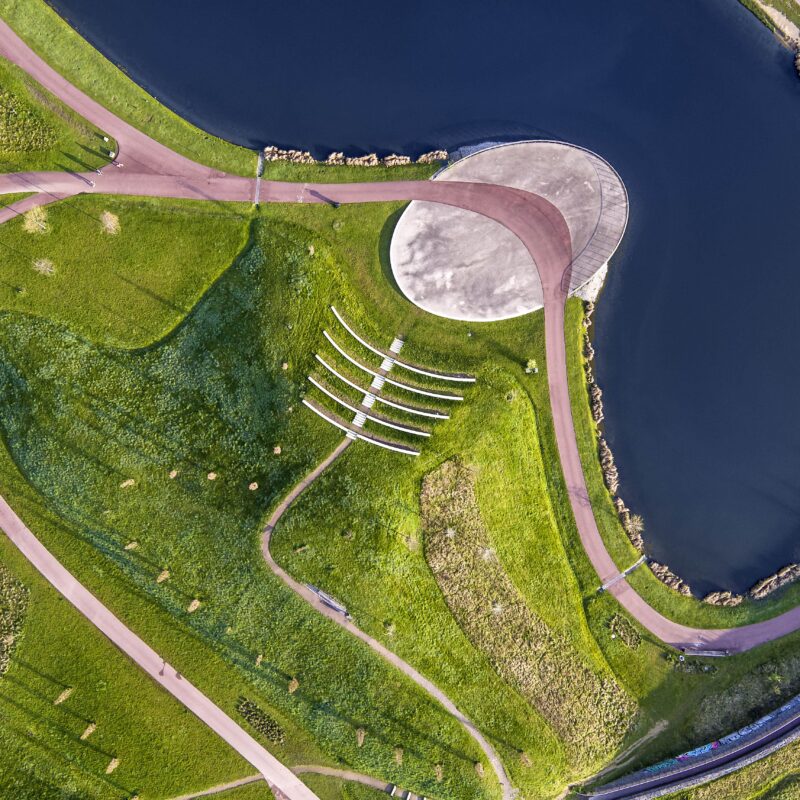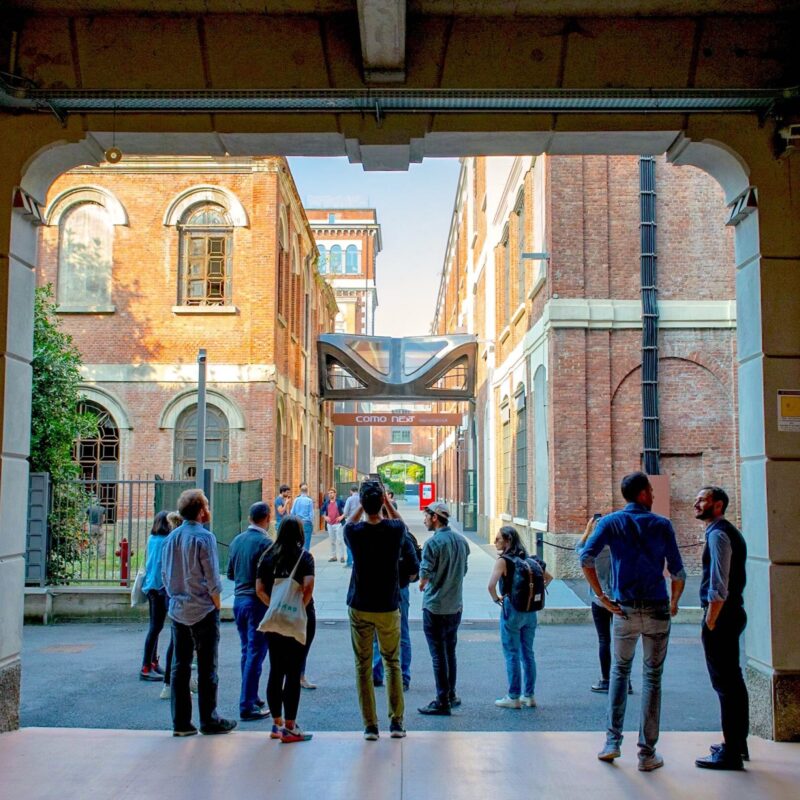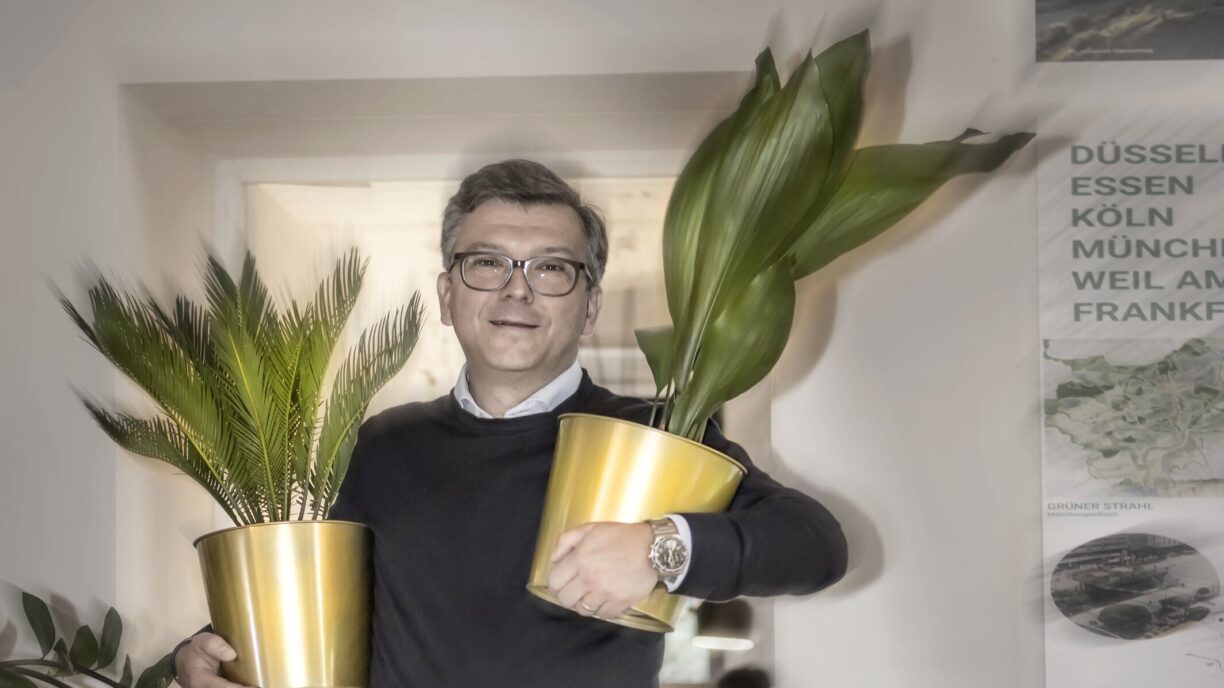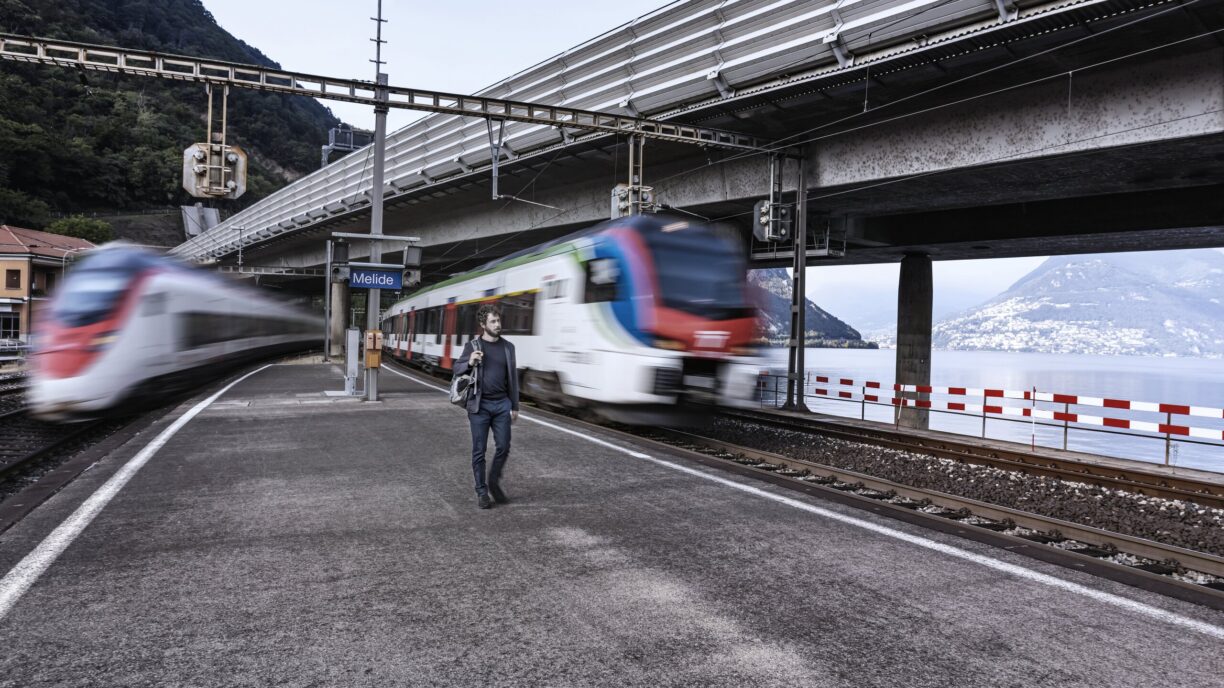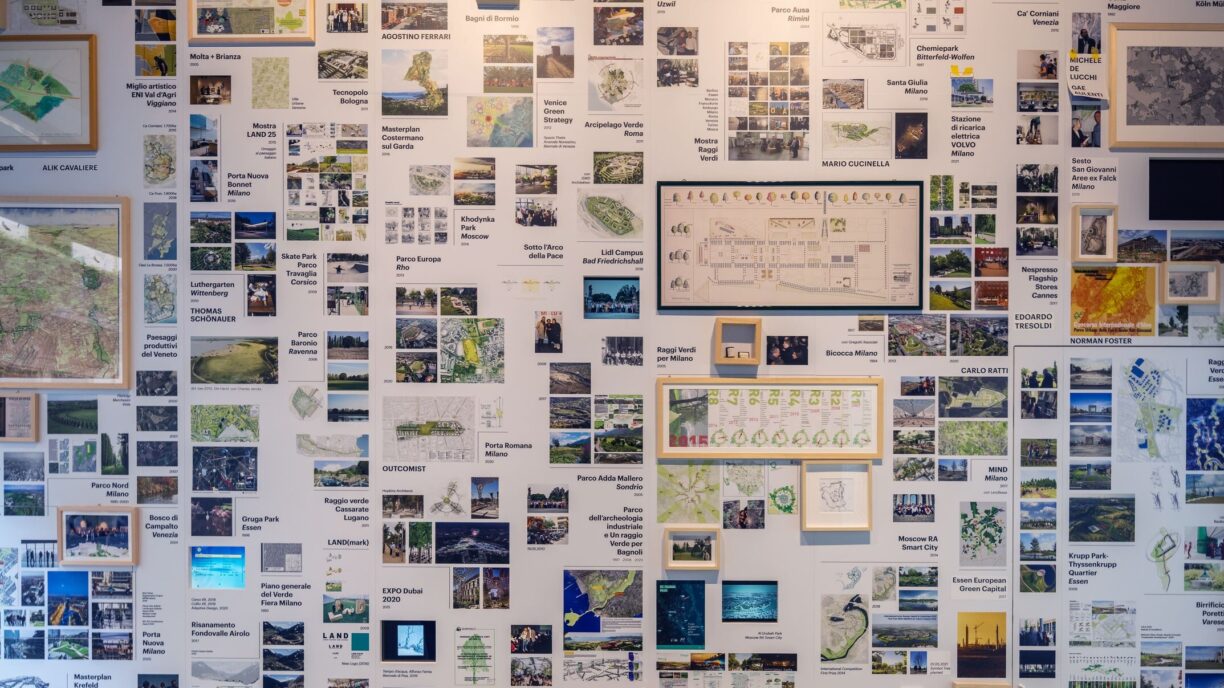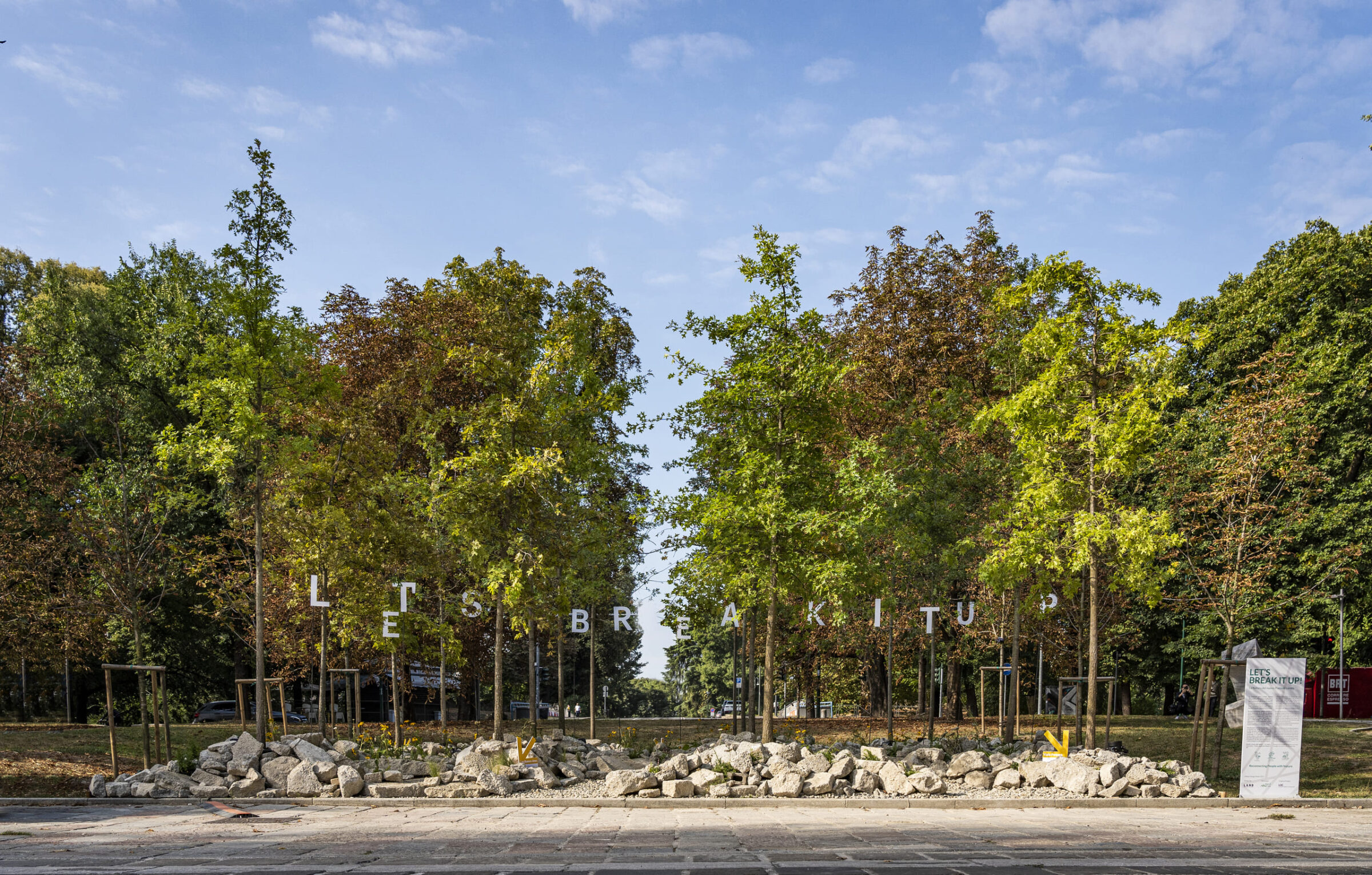
Breaking It Up Twice Over
Nature and the city in a Loreto Open Community Project
A conversation with Marco Balducci, CEO of Nhood Services Italy about nature and changes in the retail industry.

Marco Balducci
Young trees break up the pavement, grasses and sunflowers sprout wildly through the asphalt. Let’s Break It Up! is an installation of sixteen oak trees planted opposite the entrance to the Triennale at the start of Milan Design Week in September 2021. This eye-catching installation symbolizes not only the force of nature breaking through the stony ground, but also breaking through to a new way of thinking. Through nature, we can radically change the everyday life of our cities, making them both more livable and more lovable. They become less orderly, less rule-bound, more spontaneous and wilder.
The installation is part of a project intended to transform Piazzale Loreto on the northern edge of central Milan. The square has long been a grey, traffic-congested hub and the source of repressed memories of the historic events of 1944-45, but also rooted in ancient Milanese history. Now it is being transformed into an island of green with 500 trees (many planted directly in the ground, and others in the surrounding streets to anchor the new square to the neighbourhood) along with fountains and recreational areas.
LOC – Loreto Open Community project is also “broken up” into multiple levels, some under cover and some in the open air. It is based on the model of a Greek agora as a centre for culture, festivals, gatherings and proximity markets. The aim is to change the life of those in the neighborhood and create a tourist attraction.
Under the master plan, which brings together various partners coordinated by Nhood Services Italy, LAND was assigned the task of handling the natural redesign. Andreas Kipar emphasizes that LOC is an urban project capable of both regenerating social relationships within the neighbourhood and establishing a new relationship with the soil and urban nature. “The green components of the project have a structural function, that of generating, together with the architecture, a new urban landscape.”
Nhood Services Italy is spearheading the LOC master plan, says CEO Marco Balducci. What is at stake is nothing less than “a fundamental rethinking of city squares.”
LOC – Loreto Open Community is a concrete example of nhood's approach to generating a triple positive impact: for people, planet and prosperity.
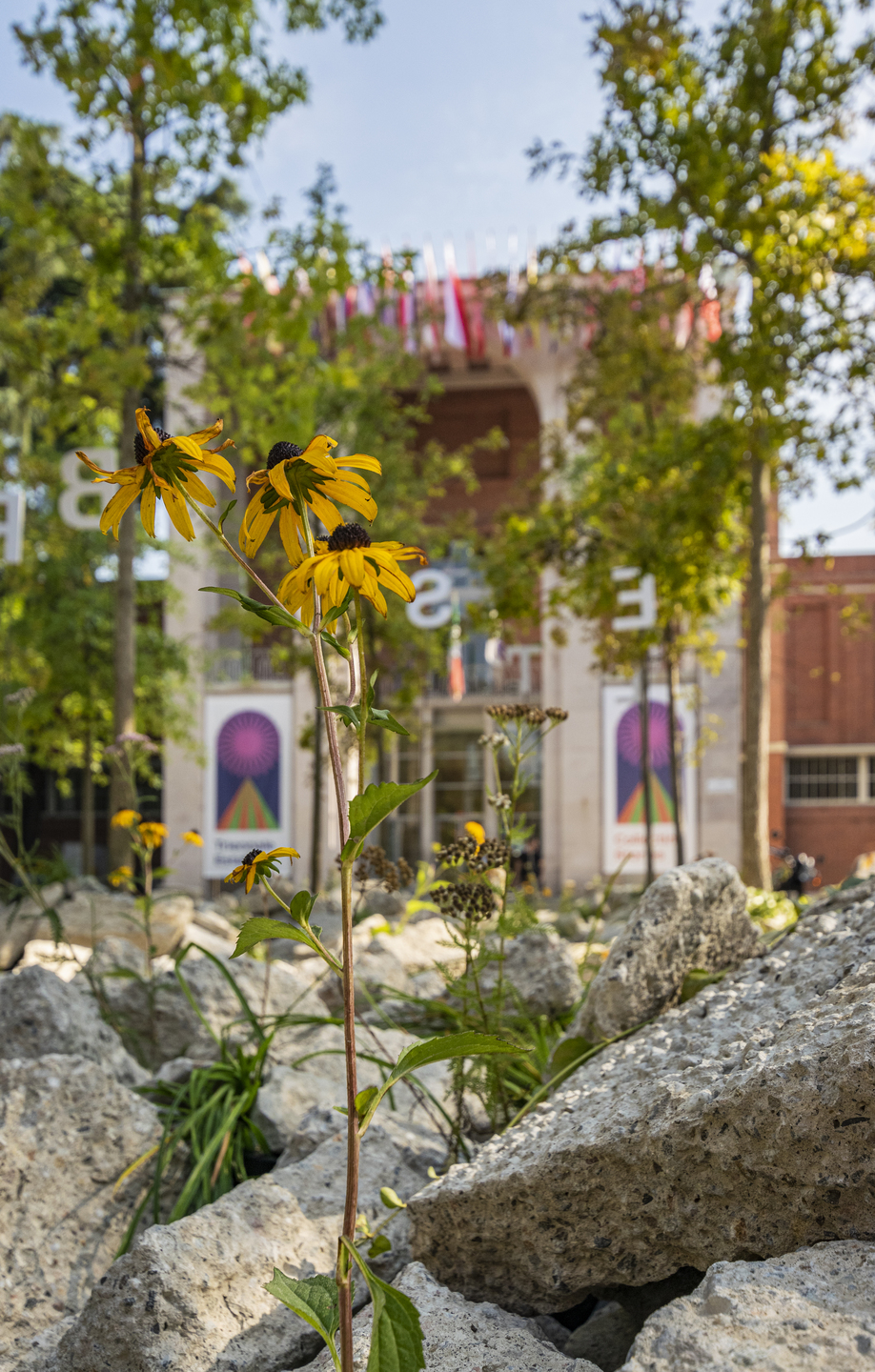
Triennale © Colella Nicola
Nhood is much more than just a real estate firm. It was formed by the merger of two companies, Ceetrus and the French firm NODI, part of the Auchan group (Mulliez family holding company). Its mission is to combine resilience and environmentalism with social and commercial use. It manages 44 shopping centres in Italy alone (297 worldwide). The construction of retail properties in accordance with international environmental standards (such as BREEAM certification) has been common practice for some time. “So, when it comes to commercial real estate, we are increasingly considering the impact of land use, what role fossil fuels play, with the aim of reducing harm.”
The notion of trade conducted over “short distances” and the “15-minute city” are topics under discussion everywhere. Will strategies to implement them have an impact on the retail industry? “Absolutely,” replies Nhood’s CEO. “Just imagine what would happen in today’s city districts, centred on offices and surrounded by retail and catering businesses serving office workers. This world would come to end. So the concept of the city and a new way of thinking about neighbourhoods, including traffic arrangements, “would completely change the retail industry in the city centre itself.”
Marco Balducci believes that the retail industry will play a major role in future changes, starting with the way “in which products are brought to the consumer, and so this concerns road traffic, which has a great impact on the environment”. Another key aspect is the production of the goods that are offered for retail sale, “so some reflection is required on how we produce.” The issues of sustainability and the use of natural resources are increasingly important in this area as well. How the future will look “is certainly a process that is still ongoing.” In the meantime, through the LOC project, Marco Balducci is promoting a concept that has little to do with the retail industry but is, rather, an appeal to citizens “to come to the aid of nature and transform Piazzale Loreto by answering “the call of the urban wild”.”
Text: Henning Klüver
Read other Articles from this Edition
